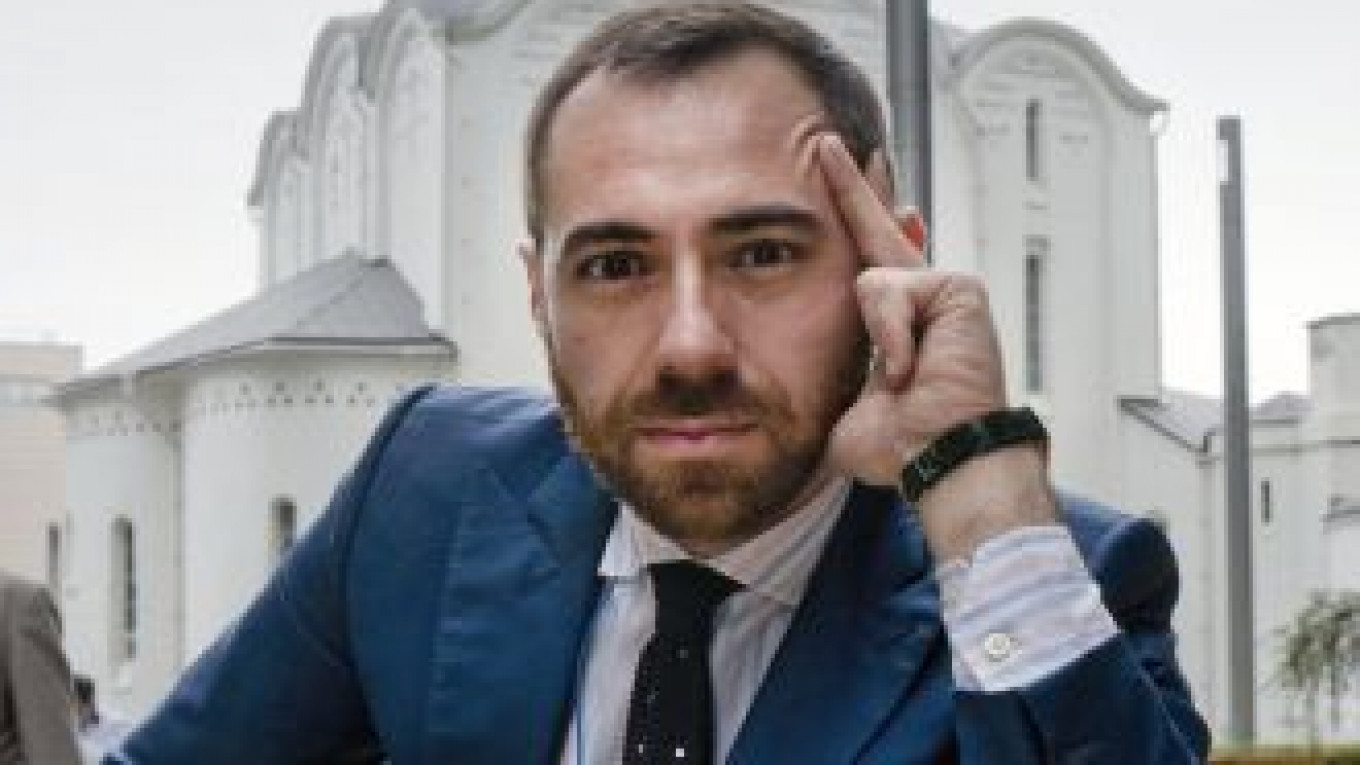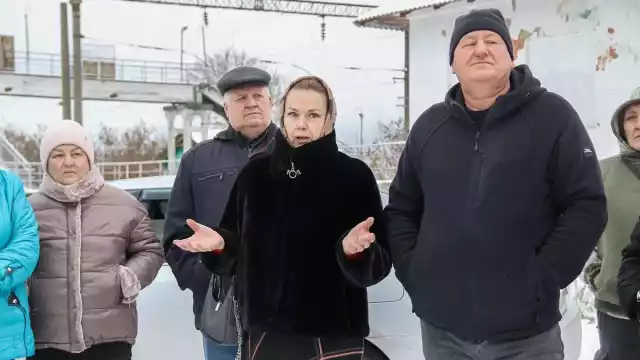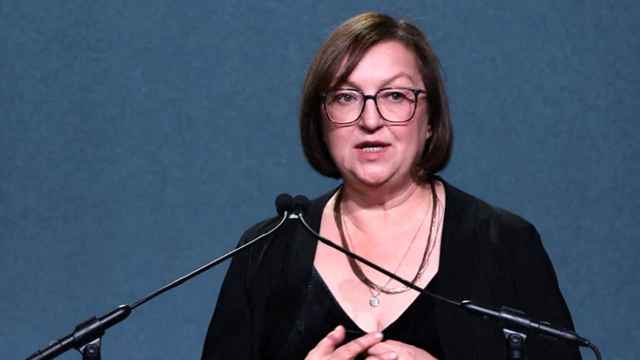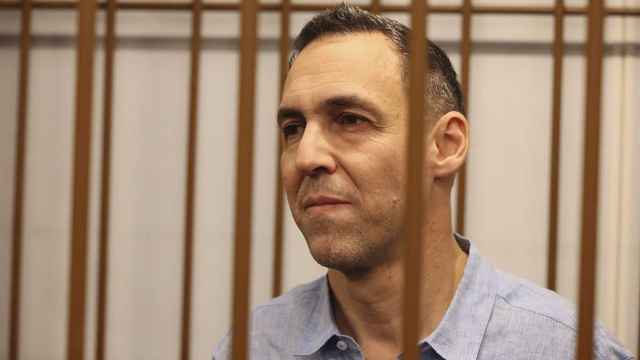Many expats come to Russia because their company sends them here. But there is a minority who come to flee boredom and conventionality they have found stifling back home.
Italian lawyer Giacomo Augugliaro is one such individual who has combined raw courage and clueless serendipity in a cocktail essential for his happy and successful life in a strange land.
"Life is like a train: sometimes you have to get on even if you don't know where it will take you," says Augugliaro, 37, who now considers himself a Muscovite. He has found the welcome here so warm that he was even selected by Marie Claire magazine as one of the five most attractive single men in Moscow.
Giacomo Augugliaro
Education
1995-1999 — Università degli Studi di Palermo, law degree2002-2003 — Università di Bologna, Masters of Law
2008-2011 — Università di Bologna, PhD, Russian Public-Private Partnerships
2009-2011 — Visiting scholar at Russian State University for Humanities, Moscow
Work experience
2002-2011 — Zunarelli B&T International Law Firm2011-2012 — Pavia e Ansaldo, Moscow; Of counsel
2012-2013 — independent legal consultant, Moscow
2013-present — FDS Law Firm, Moscow; Managing Partner
Favorite book: The Leopard (1958), by Giuseppe Tomasi di Lampedusa
Reading now: Decembrists in the Memories of Contemporaries (1988), by Vladimir Fedotov
Movie pick: "Once upon a time in America" directed by Sergio Leone (1984)
Favorite Moscow restaurant: Margarita, Patriarshiye Prudy, 28 Malaya Bronnaya
Weekend getaway destination: Suzdal.
He is now managing director of law and accounting firm FDS Law, having moved to Russia 4 years ago with no local language skills, no connections and no clue as to what he was going to do.
The path that led to his emigration was a mix of predictable and unpredictable moments.
By the age of 23, Augugliaro finished his legal studies. At 28 he set up a law firm in Sicily together with his tutor, Professor Stefano Zunarelli of Bologna University, and 2 other colleagues.
"I wanted to help companies of my district to solve their problems," he said. However, he found this to be an impossible task in economy supported by the federal budget, where the main employer was the state. "The main goal of the politicians in charge of the state budget money, was creating economic dependence and not economic development," Augugliaro said.
Following his stint in the private sector, Augugliaro started a job as a civil servant for the Sicilian government. But he found the work mundane and unsatisfying.
"I was suffocating," he said. "I knew I could not make any difference. As one famous Chinese military General Sun Tzu once said 'There are roads which must not be followed, armies which must not be attacked, towns which must not be besieged …'" So he decided to leave his island homeland.
"I love Sicily and my home town Trapani, but I did not want to start hating it, which is why I knew I had to leave."
Augugliaro started to look for opportunities abroad but lacked a clear view of where he wanted to go and what he wanted to do. He turned to his tutor and friend, professor Zunarelli, for help. At a time, the young lawyer was writing his PhD thesis under Zunarelli, who already had a very global view of life thanks to his own law firm's presence in emerging markets like China and Mozambique.
Zunarelli believed that opening an office in Russia could be a great opportunity for developing his law practice.
"We were in my car, driving from Palermo to the airport, it was May 2008; extremely hot," said Augugliaro, recalling the genesis of the new venture. "Stefano said, 'Giacomo, Russia is booming. You can finish your PhD in Moscow and try to develop links with local law firms. I think that for a person like you it could be a great chance — do you want to try Moscow?'" It took me two long seconds to think about my response and say yes.
Six months later, Augugliaro moved to Moscow. He began to develop a network of contacts while finishing his PhD in European transportation law and then later worked as an independent legal consultant for two big companies in the energy sector.
He was surprised when he got appointed managing director of the Moscow office of a law and accountancy firm 3 years after arriving but realizes that it was partially due to luck and partially the hard work he put in as soon as he hit the ground.
Augugliaro does not like to plan too much and instead prefers to live in the moment, which he knows how to enjoy in Moscow. "You have everything you need here: taxi drivers talking philosophy, beautiful women, interesting conversations, horses trotting around at night in the city center for no reason and open minded people …"
This interview has been edited for length and clarity.
Q: What struck you when you first arrived in Russia?
A: Everything. When I moved here all my life changed to something completely different. I can't pick out one thing. Well, I remember, I used to spend ages in the metro because I did not recognize a single letter in the Cyrillic alphabet.
Q: What was the most challenging experience that you have had here?
A: It was hard at the beginning. I didn't speak the language and didn't know anyone. I started to build my network of contacts. One of the first people I met in Russia was the Italian ambassador, to whom I was introduced by a friend. I was nobody at the time, with no formal job and no connections, and I was speaking to an ambassador. Then, step by step, I began to meet more and more people.
Russians are very hospitable and open. Three weeks after I arrived, I met a person who wanted to set up a company designing shirts. He was a successful local banker who loved clothes. He said to me, 'I like how you are dressed. Where did you get your jacket from?' I said, 'It was made for me in Sicily.' He replied, 'I want to go to Sicily with you. When are you going next time?' A week later we went together to Sicily, and he now has a company designing shirts in Sicily. This person is now one of my best friends. A meeting like this, a business development like this is only possible in Russia.
Q: Is this what attracts foreign investors to Russia?
A: What attracts foreign investors to Russia is the opportunities. Not just in oil and gas, but pretty much in any sector — it can be anything from chocolate production to information technology.
Business here is younger and more flexible than in Europe. This is due to a number of factors. Since the USSR collapsed, a new system started to develop, and it is still developing. As a result, the managing director of a company in Russia is 33-35 years old on average. The same position in a Western country would be occupied by someone 20 years older who should be heading for retirement by that age. This is just one example, but even taken on its own, it does make a difference.
Q: When you came to Russia, you were still working on your PhD, which was about public-private partnerships. Did this topic relate to your Russian experience?
A: When I arrived in Moscow, I was reading a lot of press about Russia, trying to understand what the trends were, what was important in here. Public-private partnerships, which are a form of co-operation between a state and a private investor, was and is a hugely important topic for the country.
Russia is the biggest country in the world. The importance of infrastructure facilities, such as transportation, cannot be overstated. Since the collapse of USSR, not much had been towards maintaining and developing the infrastructure, but today this has changed, and there are lots of projects in this area. Many of them are implemented through cooperation between the Russian state and an investor — Russian or foreign. In other words, through public-private partnerships. I believe that this form of cooperation is very effective.
Q: Would you say that politics influences business in Russia a lot?
A: "If you do not turn to politics, politics will turn on you," is a saying I know. I would say that in Russia, a successful businessman tends to engage in politics not because he has to, but because he wants to make a difference. I do not think that it is a bad thing. In Europe this does not happen, simply because this is not possible. The system is there already and it works in a certain way. At the same time, politics do not affect my business in Russia or me personally in any way.
Q: Have you ever had to deal with corruption here?
A: I know that there are problems of this sort, but so far I did not have to face anything like this. I know that there is this stereotype about Russia: Without a bribe, it is not possible to do anything at all. I don't believe that this is the case.
Q: Would you say that Russia is a European country when it comes to business?
A: A nation's character is in many ways defined by its geography. There is a book about it by Robert D. Kaplan called "The Revenge of Geography," which talks specifically about Russia in this context.
Russia swallowed Napoleon and Hitler by stepping back and absorbing the armies of both. The same can be said about Western business models — once absorbed they exist in Russia but in a Russian way. Russia can only be compared to Russia. It is a "horizontal" country. You rely on people, not on institution; and people are very different, in a sense that they come from very different cultural backgrounds. Russia is a melting pot.
The most difficult thing about business management in Russia is like in any other country in the world — managing people's expectations. A managing partner is like a father: He should make sure that everyone in his team is happy.
Q: What advice would you give to foreigners who want to come and work in Russia?
A: Do not be a tourist. You need to learn the language and build a network among Russians. Otherwise, it is like everywhere: no pain, no gain. If you believe in what you want to do and believe in Russia, you will achieve what you want.
Q: Would you say that following your move to Russia, your attitude to certain things changed?
A: Yes, to myself. I have grown up. I see people better: I see whether I can trust them, whether we can work together.
Q: Do you want to stay in Russia?
A: I take what life has to offer me. I enjoy my time here now and I am not bored. You can find everything you need here in Moscow: taxi drivers talking philosophy, beautiful women, interesting conversations, open people, horses trotting around at night in the city center. What's next? I don't know.
Contact the author at [email protected]
A Message from The Moscow Times:
Dear readers,
We are facing unprecedented challenges. Russia's Prosecutor General's Office has designated The Moscow Times as an "undesirable" organization, criminalizing our work and putting our staff at risk of prosecution. This follows our earlier unjust labeling as a "foreign agent."
These actions are direct attempts to silence independent journalism in Russia. The authorities claim our work "discredits the decisions of the Russian leadership." We see things differently: we strive to provide accurate, unbiased reporting on Russia.
We, the journalists of The Moscow Times, refuse to be silenced. But to continue our work, we need your help.
Your support, no matter how small, makes a world of difference. If you can, please support us monthly starting from just $2. It's quick to set up, and every contribution makes a significant impact.
By supporting The Moscow Times, you're defending open, independent journalism in the face of repression. Thank you for standing with us.
Remind me later.






